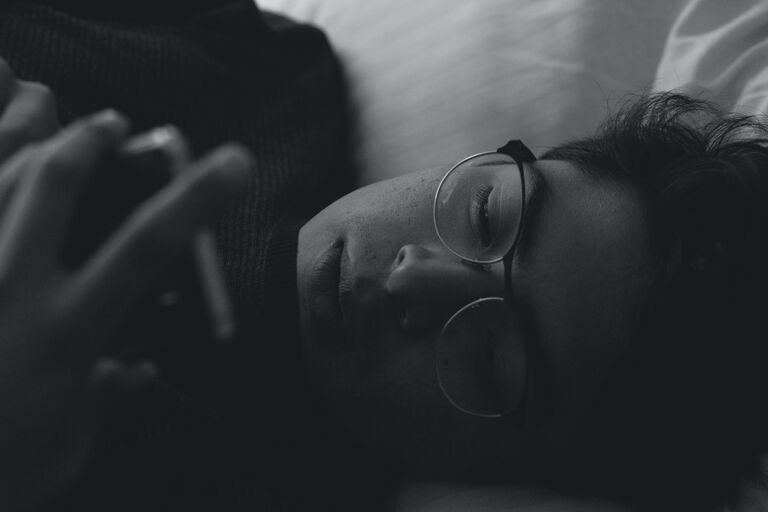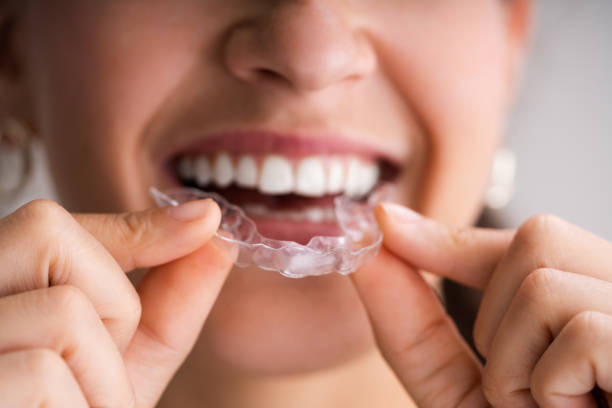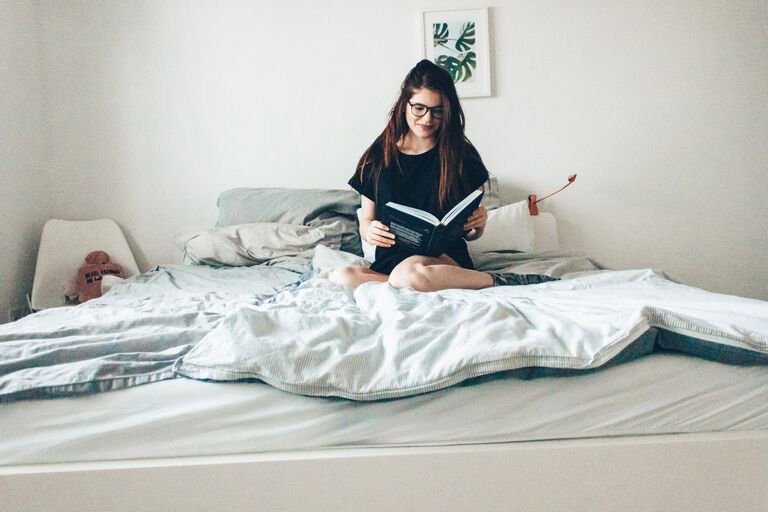HOW DOES TECHNOLOGY AFFECT SLEEP?

It may feel like every week we are being told about the latest product or piece of technology that will help us sleep. Indeed, ‘sleep tech’ is a booming business and there are many sleep gadgets that can help to provide a better night’s sleep.
However, the relationship between technology and sleep is complex and we should be mindful of this when attempting to use sleep gadgets. TEMPUR® will offer some guidance on how technology, from televisions to sleep apps, can affect your night’s sleep.
Sleep Apps
The sleep tech industry began with hardware accessories, such as watches that track the number of hours that you have slept. These trackers, over the years, have grown in sophistication, with artificial intelligence (AI) now being used to analyse the data they gather. There are now sleep apps that engage with the data recorded by these trackers and give users a detailed analysis and breakdown of their quality of sleep, allowing you to plan changes that help produce a perfect night’s sleep.
There are also sleep apps available to aid falling asleep. These can provide a range of services, including sleep apps that guide users through relaxing meditation and even some that offer hypnotherapy to address anxiety and stress.
Nevertheless, while these sleep apps can be beneficial, they have been shown to be occasionally detrimental. A focus on tracking sleep, with the aim of producing a perfect night of rest, may be counterproductive as an over-decency, this could lead to inducing further anxiety. So, when using sleep apps, be mindful of the time you spend engaging with them.
Alarm Clocks
A sleep device that we are all familiar with, alarm clocks have recently been undergoing a rebirth. While the idea of promptly being woken up in the morning always sounds amazing, the harsh bell or ringing noise we usually associate with alarm clocks always makes the idea of using an alarm clock seem like an unfavourable idea. However, this is no longer the only way to wake you in the morning.
Aiming to reflect nature’s method for waking up, there are now alarm clocks available that use light that gradually intensifies over a set period of time, normally around half an hour, to awaken their user. Sunlight plays a significant role in regulating our sleep cycle and light-based alarm clocks are recognising this and adapting to provide an easier rise in mornings.
When Is Technology Bad for Sleep?
Technology can be bad for your sleep if it is providing you with either stimulation or blue light.
The blue light emitted from screens prevents sleep as it is a wavelength that sometimes misleads your brain into believing it is daytime. This causes hormones to be released that tell your body to stay alert and so is not conducive to a restful night of sleep. You should therefore avoid exposing yourself to any form of blue light at night, this can be from scrolling through social media or watching TV in bed.
Screens can also obviously be highly stimulating. This is especially true if using a smartphone or playing a video game, as these are activities that require responses rather than passive consumption. The need to formulate responses keeps your brain engaged, preventing you from falling into your peaceful slumber.
Alternatives from screen time can include, meditation, reading a book, or ASMR. These are soothing and will help signal to your brain that it is time to rest. Establishing a routine with these activities will aid consistently better sleep.
However, when it comes to technology, remember that there is no substitute for a great mattress. The long history of the mattress means that it is often overlooked as a form of sleep technology. TEMPUR® are proud to be the only mattress and pillow brand recognised for improving quality of life. Sink into one of TEMPUR®’s luxuriously supportive mattresses that can adapt to the weight, shape and warmth of your body.
Download our brochure
Want to know more about our story? Download our brochure to see more.

Visit a TEMPUR® store or talk to a sleep expert
Want to know more about TEMPUR®? Either visit us in store or arrange to speak to us today.
Get the latest news and offers
Sign up to receive news and offers about TEMPUR® products. Detailed information on the use and storage of data can be found in the Privacy Policy.


